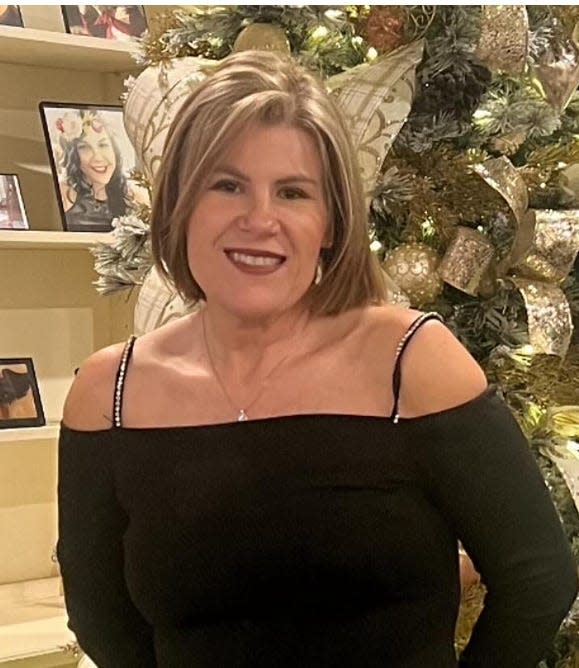Defrauding charities in Oklahoma should be illegal. Lawmakers missed an opportunity to ban that
Oklahoma state lawmakers just missed an opportunity to ban health insurers from defrauding charities.
You might assume this is already illegal. But it isn't. And the legislative fix introduced by Sen. Julie Daniels, R-Bartlesville, and Rep. Marcus McEntire, R-Duncan ― the "Patients Pay Less Act" ― failed to advance to the Senate in time for its March 14 deadline.
Our lawmakers would be wise to revisit this bill in the next legislative session.
In recent years, some insurers have devised a highly unethical ― but not technically illegal ― strategy to weasel their way out of paying for beneficiaries' medications.
Using a series of convoluted maneuvers, they effectively reclassify some beneficiaries as "uninsured," thus making them eligible for financial assistance from medical charities. This siphons charitable assistance away from Oklahomans who are genuinely uninsured.
The strategy takes advantage of what's known as "alternative funding programs."
Under AFPs, insurers and some employer-sponsored health plans ― such as the ones offered by school districts, unions and large companies ― deliberately remove certain high-cost medicines from their list of covered drugs.
Health plan administrators then coax beneficiaries who need those drugs to apply for patient assistance programs, the charitable entities set up by drug companies and foundations to help people access needed medicines. This scheme drains resources away from charities ― and funnels money back to the insurance companies or employer health plans that should have been providing coverage in the first place. (Forcing patients to apply for assistance ― simply because their insurer doesn't want to cover a drug ― can also lead to costly and life-threatening delays in care).
This is a complete violation of patients' trust.
Many workers pay thousands of dollars in premiums each year for their health coverage ― with the expectation that health plans will pay for treatments if they fall ill. Yet, increasingly, health plans aren't holding up their end of the bargain.
In 2022, about 14% of employer-sponsored health plans utilized alternative funding programs, up from 6% in 2021.
More: Need 'Extra Help' paying for prescriptions? Savvy Senior has some tips
Alternative funding programs are themselves an outgrowth of "copay maximizers" ― another ethically questionable, but currently legal, tool used by insurers.
Here's how they work. Let's say that a particular cancer treatment recently hit the market. Like most innovative new drugs, it's expensive.
But the biotech company that invented it, or a charitable foundation, offers up to $20,000 a year in financial assistance to cancer patients to help them cover their copay and coinsurance requirements.
That financial assistance, when used for copays and coinsurance, would normally be more than enough for patients to reach their annual out-of-pocket maximums, after which point their insurance plans should cover any remaining costs. After all, the Affordable Care Act capped out-of-pocket costs for "essential health benefits" at $9,450 for individuals in 2024, and $18,900 for families. Prescription drugs are codified as an essential health benefit.
But many insurers and employer-sponsored health plans are skirting this requirement by simply classifying certain drugs as nonessential.
Health plans aren't categorizing drugs at random. They're picking medicines ― and setting out-of-pocket requirements ― based on which drugs come with patient assistance programs.
On that cancer drug, for instance, a copay maximizer would enable insurers to collect the full $20,000 in assistance available to the patient, instead of $9,450 if the Affordable Care Act limits applied.
More: Prescription drugs can be a financial burden on seniors. Here are some tips to cut costs
Many of the drugs deemed "nonessential" are anything but. One insurer's list of nearly 800 medicines subject to copay maximizers includes therapies for rheumatoid arthritis, COVID-19 and cancer. Use of maximizers has soared in recent years. Nearly half of commercial health plans used maximizers in 2023, compared to just 6% in 2018.
Fortunately, some Oklahoma legislators seem ready to crack down on these unethical, but still legal, practices by banning health plans from using copay maximizers or alternative funding programs.
In Oklahoma, patients too often struggle to afford life-saving medicines because of unfair insurer tactics. It's time for our leaders to reform this system.

Jill Sisco is an acromegaly patient, rare disease advocate, and the president of the Acromegaly Community, an emotional and communal support network for people touched by acromegaly.
This article originally appeared on Oklahoman: Oklahoma lawmakers should ban insurers from defrauding charities
